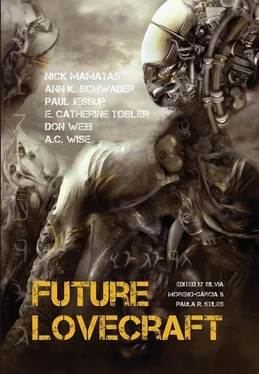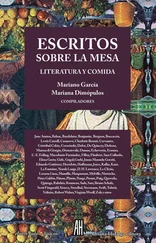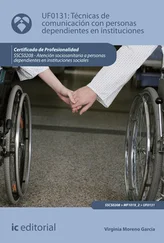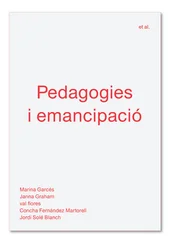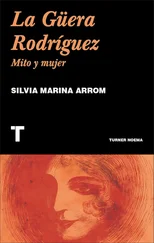“But it was less than nothing…minus an hour. Weird.”
“Seems so. I don’t care right now. Let’s go home.”
“You took the words right out of my mouth.”
“Didn’t change them, though—did I?”
The twins went through the routines for securing the building; recalibrating and turning on the sensors, checking that all peripheral doors were closed and locked; setting the alarms; and, finally, locking the main entrance doors with their bronze bas-reliefs. Someone else could open them tomorrow. They were going to call in sick. They’d earned it.
Just as the heavy doors were clicking shut—way, way back at the end of the oldest, dustiest stack—a black eye opened and closed; a tiny violet light winked on and then out.
GO, GO, GO, SAID THE BYAKHEE
By Molly Tanzer
Molly Tanzeris the Managing Editor of Lightspeed and Fantasy Magazine . Her debut book, A Pretty Mouth , is forthcoming from Lazy Fascist Press in late 2012. Her fiction has appeared in Running with the Pack , Historical Lovecraft , Lacuna , The Book of Cthulhu , and other places, and is forthcoming in Andromeda Spaceways Inflight Magazine . She is an out-of-practice translator of ancient Greek, an infrequent blogger, and an avid admirer of the novels of eighteenth century England. Currently, she resides in Boulder, Colorado with her husband and a very bad cat. You can find her at http://mollytanzer.com. More frequently she tweets over at @molly_the_tanz.
…human kind
cannot bear very much reality.
Time past and time future
What might have been and what has been
Point to one end, which is always present.
—T.S. Eliot
WRIGGLER LIVED IN the lake, and when you didn’t throw stones at him too much, he would bring up purple-scaled balık and tiny scuttling yengeç for roasty crunchings. Feathers lived in a hut in the treetops and she would help pick the highest-up kayısı when they were ripe and juicy—sometimes. Feathers was mean. Half the time, if you so much as looked at her funny, she would open her mouth wide like an O and birdy squawks would come out, eee eee eee , which, true, were the only words she ever said since she changed, but she could make them sound so angry ! No one cared if she was angry, though, because even with the wings, she couldn’t fly. Wriggler could breathe underwater, and Whee! could swing from branch to branch with his long fuzzy tail, and Mister Pinch could bruise you with the handy claw on his extra arm, if he ever got mad at you. Ouch! Feathers, she looked like a birdy, but wasn’t, quite. Everybody said it was because she didn’t pray hard enough when she went on pilgrimage to Tuz Gölü, to see the Mother in the Salt.
Dicle was still a two-legs, two-hands, two-eyes, upright skin-wearer, so she still had her cradle-name that said nothing at all about who she really was. Bo- ring! But that would change soon, she knew it. When she went to fetch water, she could see, in the shiny surface of the well, two of the protuberances mammals and mostly-mammals got when they were ready to give live birth and suckle their young, and she’d had a dream about Wriggler coming to the surface and touching her between the legs with one of his long, bendy arms. Those were the signs, Whee! had said, but then again, Whee! couldn’t be trusted, not completely. Whee! wanted to be the one Dicle took as a snuggler, once she was given her true shape by the Mother in the Salt. But Dicle knew she’d rather snuggle with Wriggler, even if they had to do it mostly underwater, so he could huff and puff through his gills.
But Stag-Face said Dicle wasn’t ready for pilgrimage, or for huff-and-puff. Stag-Face said she was still a baby-girl and, since Stag-Face was the boss of everybody—those who’d visited the Mother in the Salt, those who hadn’t yet, and especially those who failed—she had to heed him. She hated it, though! Ugh! Kids like her, they couldn’t dance in the nightly revels, and they had to do all the worst chores, like climbing up the burning rocks to every single one of the hill-caves to dump out the piss-pots, or sweeping away the rubble to find the empty meat-shells when the earth shook and there were cave-ins, or weave reeds into wind-shields so people could sleep out of the dusty, gusting breezes. But Dicle didn’t like climbing, and she didn’t like to clear away rocks to find meat-shells, and she didn’t like weaving, either. She liked to run as fast as she could and she could run so fast! Stag-Face said maybe she could be a messenger, once she was old enough. But she was old enough and that was why she’d come up with the secret plan.
Well, it wasn’t a total secret. Wriggler knew, but he’d promised not to gurgle it to anyone else. In fact, he’d helped her by catching balık a-plenty, just for her. Dicle had built little fires and smoked them so she’d have food for the overnight journey to Tuz Gölü. She knew it was wrong to disobey Stag-Face, but ever since her mama had been crushed to death in the cave-in during the shivery months, Dicle had been restless. She was going to go on pilgrimage, whether mean old Stag-Face liked it or not, and when she went, she’d take her mama’s bones to the Mother in the Salt, so Mama could really rest. The Mother in the Salt would be so very pleased she’d change Dicle just how she’d always wanted, and then Dicle would come home and snuggle with Wriggler and everything would be wonderful.
✻ ✻ ✻
The morning she left, early-early she awoke, after the revelers were all in bed and before even the dawn-time scurriers were out and about. She snuck away at a run, the rucksack she’d stuffed full of Mama’s bones and smoked balık bouncing on her back, the skin full of water slapping her hip. She’d also strapped a gleaming knife to her arm, so the beasties of the wood and the ghouls of the salt flats would see she was one dangerous girl. She bared her teeth as she ran, grr!
The path was made of cracked black stuff, and was smooth from ages and ages of people going to Tuz Gölü and elsewheres. Dicle wasn’t scared, though—at least, not at first. Back during the shivery months, right after Mama had died, she’d gone down the path a fair way before Whee! had caught her and told Stag-Face. Stag-Face had beat her, bad, and Whee! had laughed at her. That, more than anything, was why he’d never- ever be her snuggler.
Everybody, even little, unchanged girlies like Dicle, knew that time and space were the same thing, except when they weren’t. There were a few places around K’pah-doh-K’yah everyone knew to avoid, where, if your eyes worked right—which was no promise!—you could see how the trees grew backwards in time and would gobble you up, if you got too close to them. Stag-Face said those places were holy because, if you looked at them too long, or thought about them too hard while you were there, you’d get a nosebleed and that was the sign of the Mother in the Salt. Also, if an animal or person went there and he or she had a baby inside them, the baby would grow so fast it would tear its way out and make its mama or papa a meat-shell instead of a mama or a papa, and the baby would be a ghoul and never know anything except hunger. That was a bad thing and it happened a few times a year, even if everybody was careful, since time isn’t always the same and, therefore, neither is space.
Dicle ran through a few of those Mother-places the first day of her pilgrimage (She ran as fast as she could, so time didn’t slow down too much for her and make her journey take too long), but she saw more and more of them on the second day, as she drew closer to Tuz Gölü. She knew she was getting closer because all the trees had gone away, and she could taste salt on her lips when she licked them, and she was thirsty. She wasn’t scared, though, because she didn’t have a baby inside her and, if any of the ghouls said boo! to her, she showed them her knife and they slithered away back to their hidey-holes.
Читать дальше
